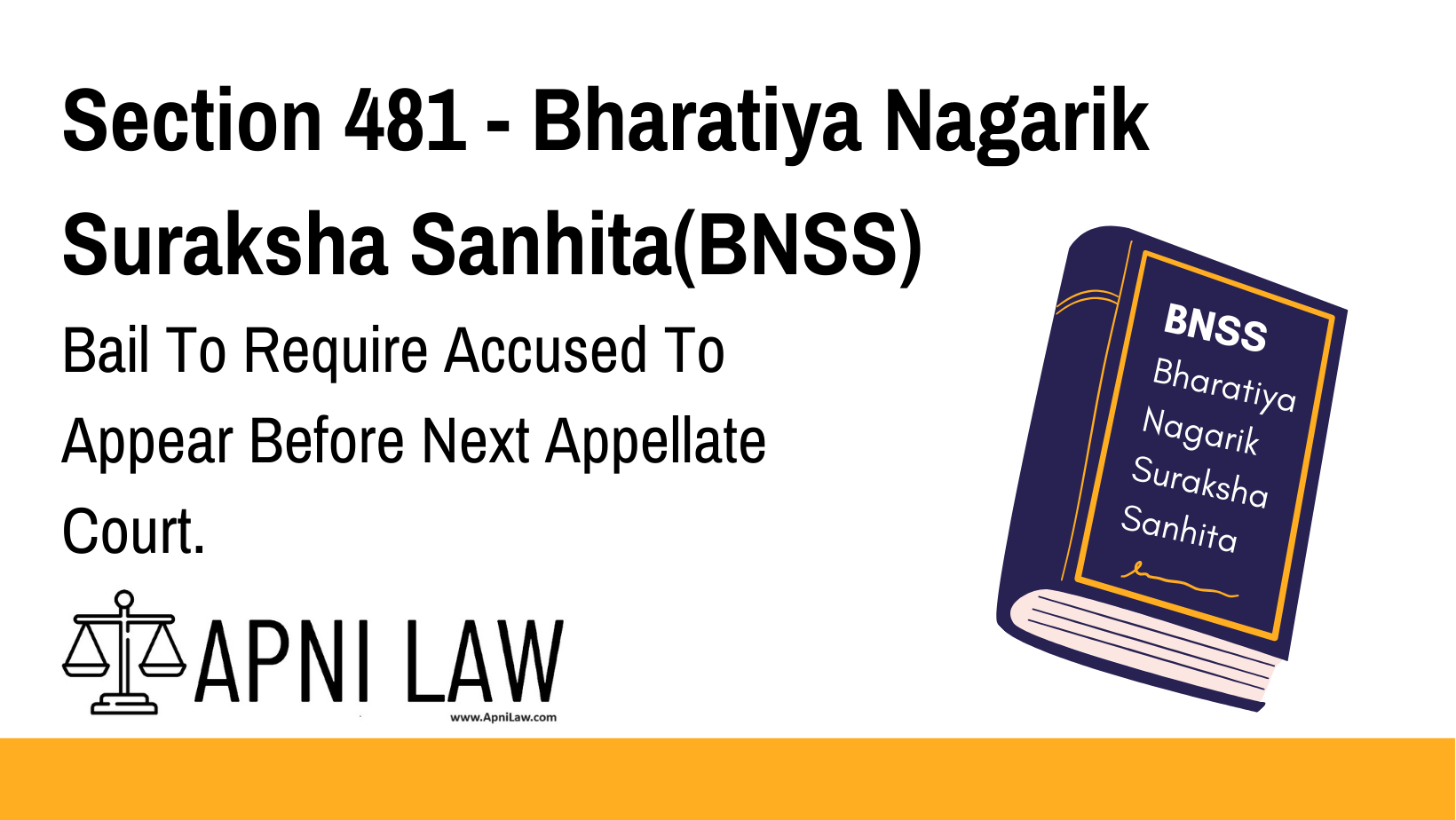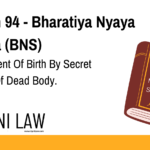Code: Section 481 BNSS
(1) Before conclusion of the trial and before disposal of the appeal, the Court
trying the offence or the Appellate Court, as the case may be, shall require the accused to
execute a bond or bail bond, to appear before the higher Court as and when such Court
issues notice in respect of any appeal or petition filed against the judgment of the respective
Court and such bond shall be in force for six months.
(2) If such accused fails to appear, the bond stand forfeited and the procedure under
section 491 shall apply.
Explanation of Section 481 BNSS
Section 481 of the BNSS outlines the requirement for an accused person to provide a bond or bail bond during the trial phase or before the appeal process begins. The bond ensures that the accused will appear before the higher Court when the Court issues notice related to an appeal or petition. The bond is typically in force for six months.
If the accused fails to appear before the higher Court after the notice, the bond is forfeited, and the procedures as outlined in Section 491 of the BNSS will be followed.
Illustration
Example 1: Bail Bond Requirement
An accused is in the midst of a trial, and the Court, anticipating that there may be an appeal or petition in the future, requires the accused to execute a bail bond. This bond will remain in force for six months to ensure the accused’s appearance before the higher Court once the appeal notice is issued.
Example 2: Failure to Appear
After the accused fails to appear before the higher Court within the prescribed period, the bond stands forfeited. The Court will then follow the procedure outlined in Section 491, which deals with the forfeiture and further actions.
Common Questions and Answers on Section 481 BNSS
1. What is the purpose of the bail bond under Section 481?
- Answer: The bail bond ensures that the accused will appear before the higher Court after the notice is issued in the event of an appeal or petition.
2. How long is the bail bond valid under Section 481?
- Answer: The bond is in force for six months, ensuring the accused’s appearance within that time frame.
3. What happens if the accused does not appear before the higher Court?
- Answer: If the accused fails to appear, the bail bond is forfeited, and the procedure as per Section 491 applies.
Conclusion
Section 481 of the BNSS ensures that an accused individual, during the trial phase or before the appeal, is legally bound to execute a bond to appear before the higher Court when necessary. It establishes a clear process for the enforcement of appearance and defines the consequences in case of default, contributing to the accountability and smooth functioning of the judicial process.








